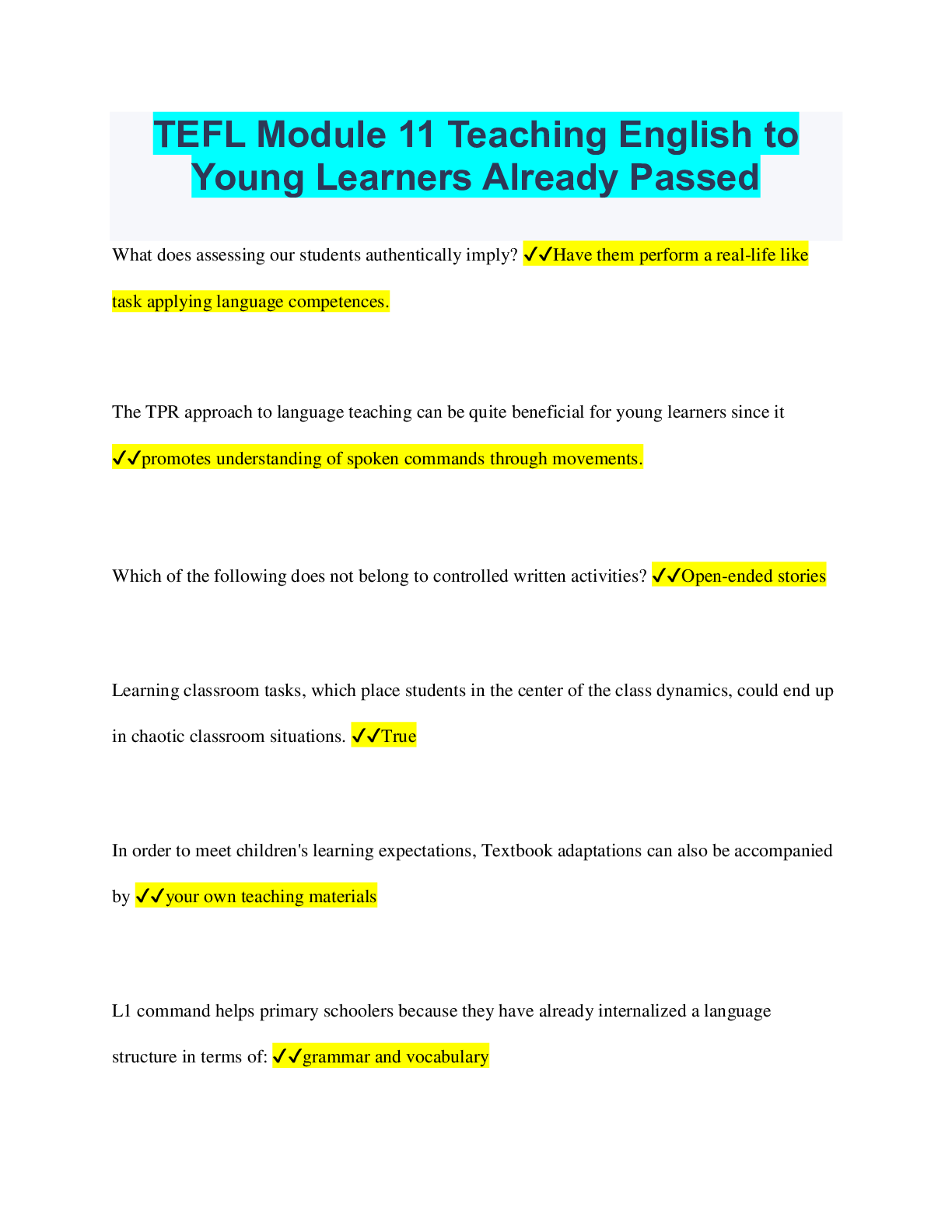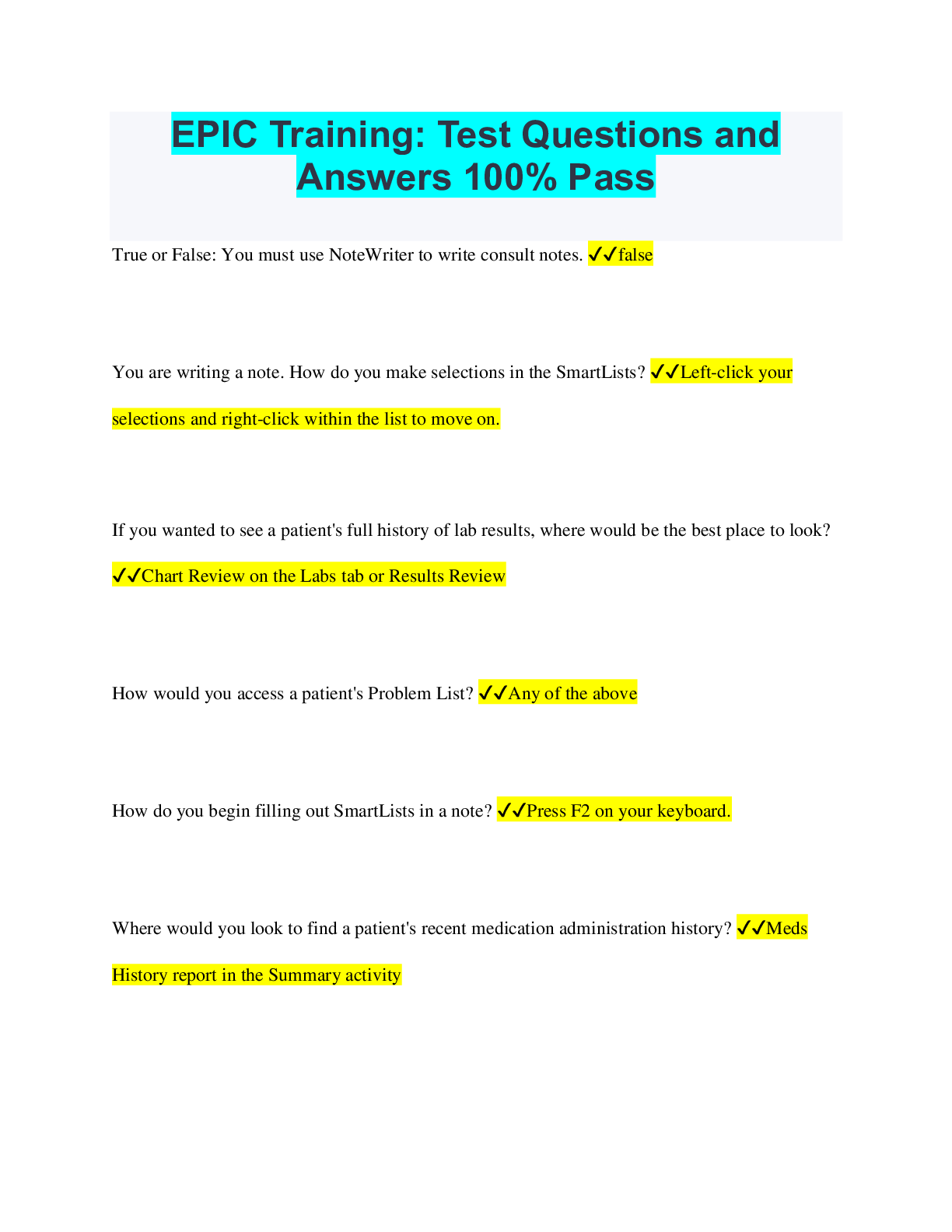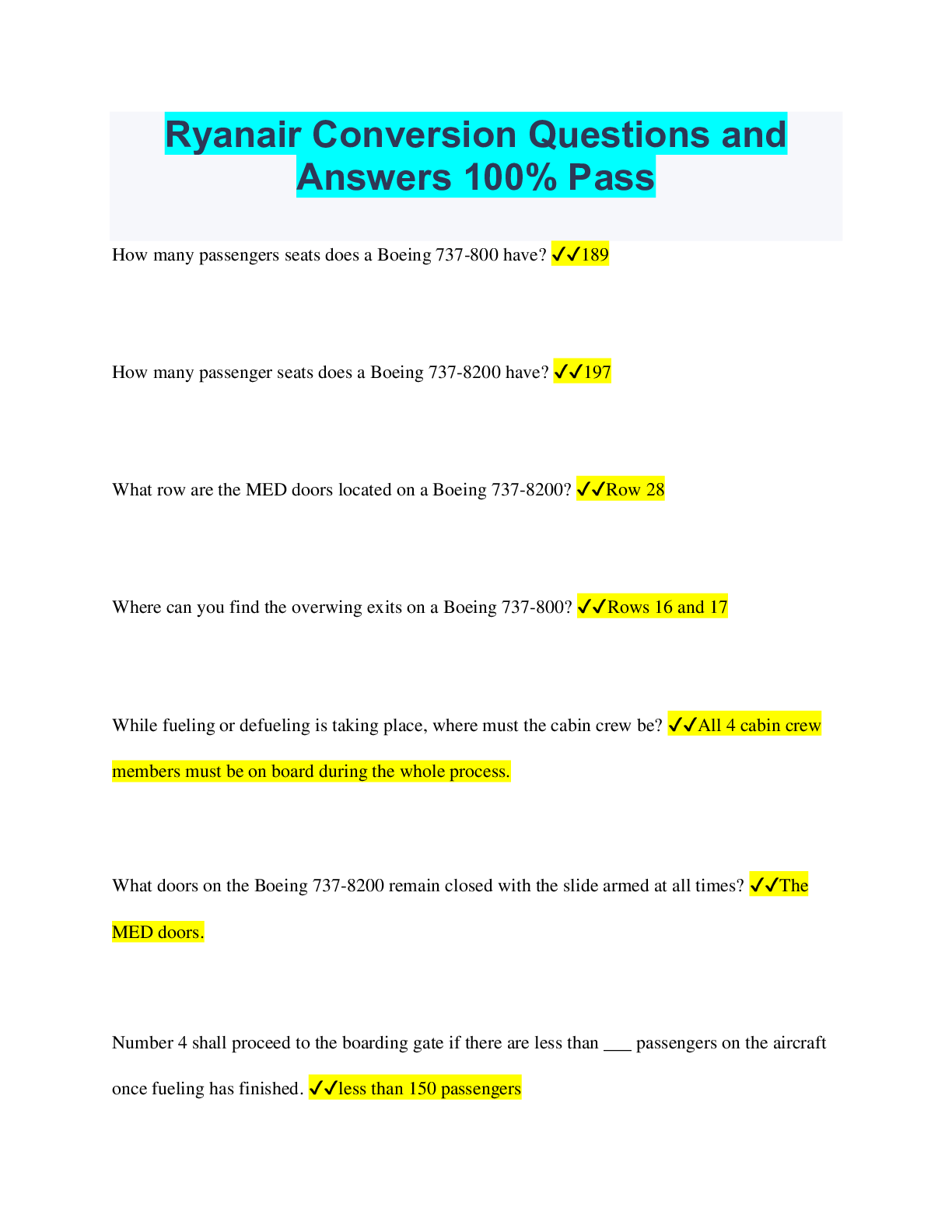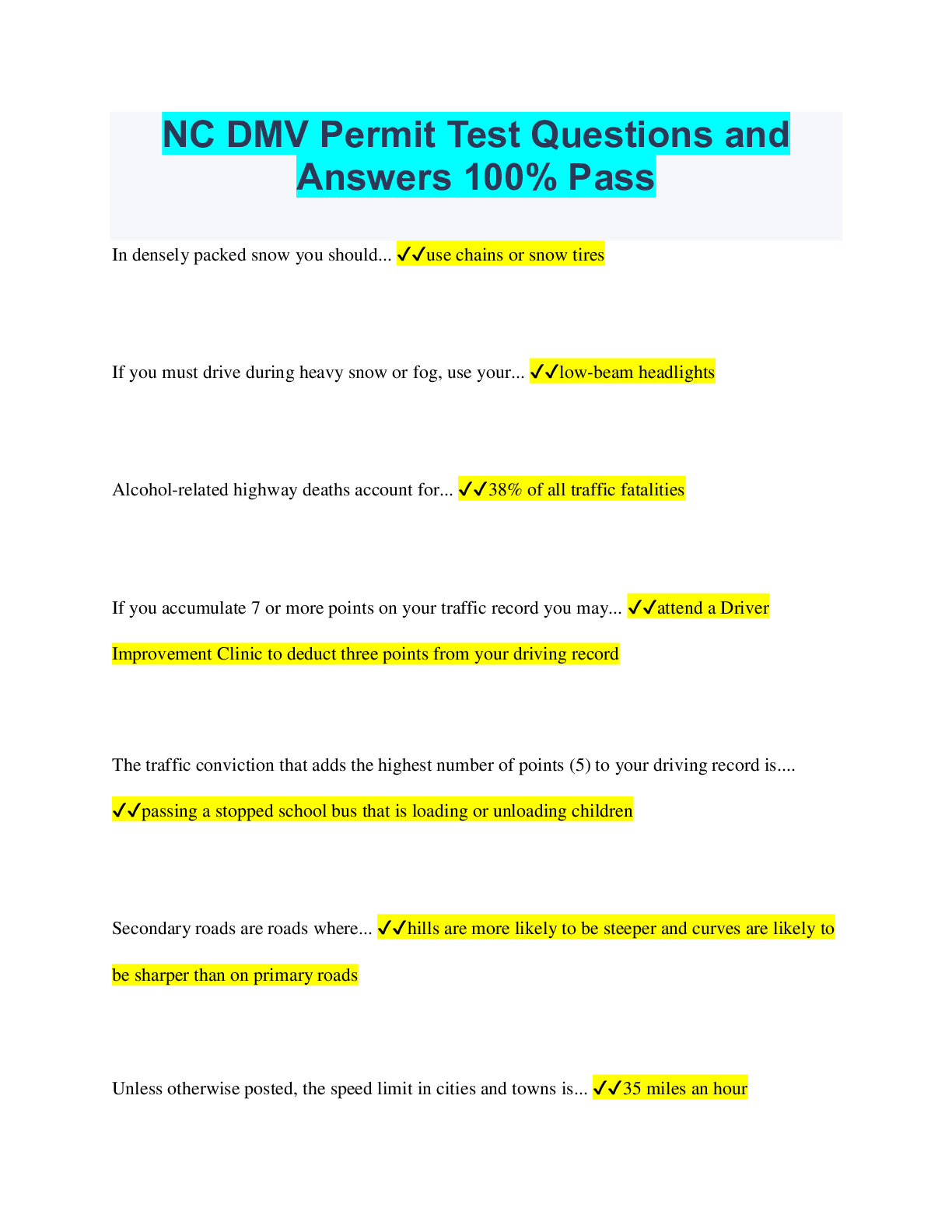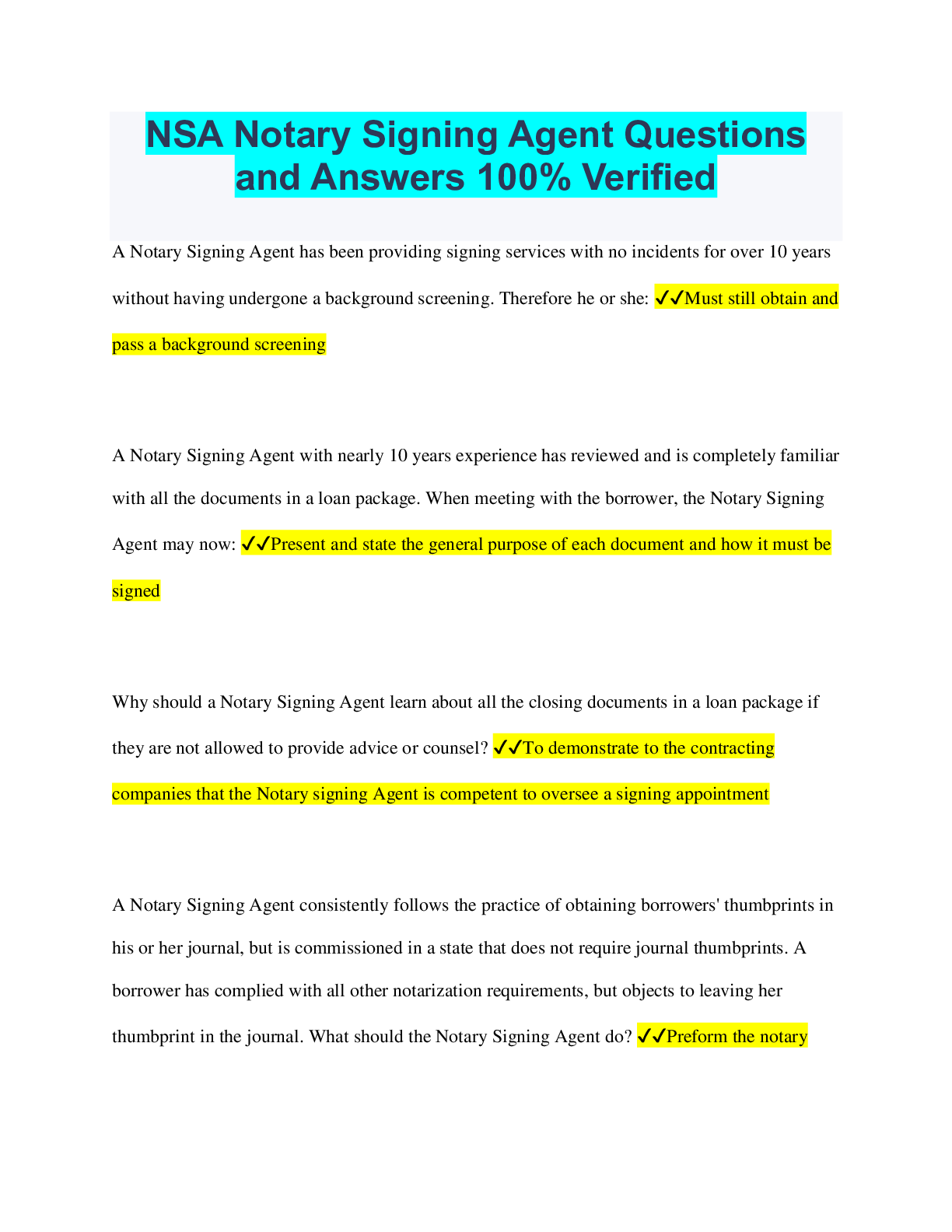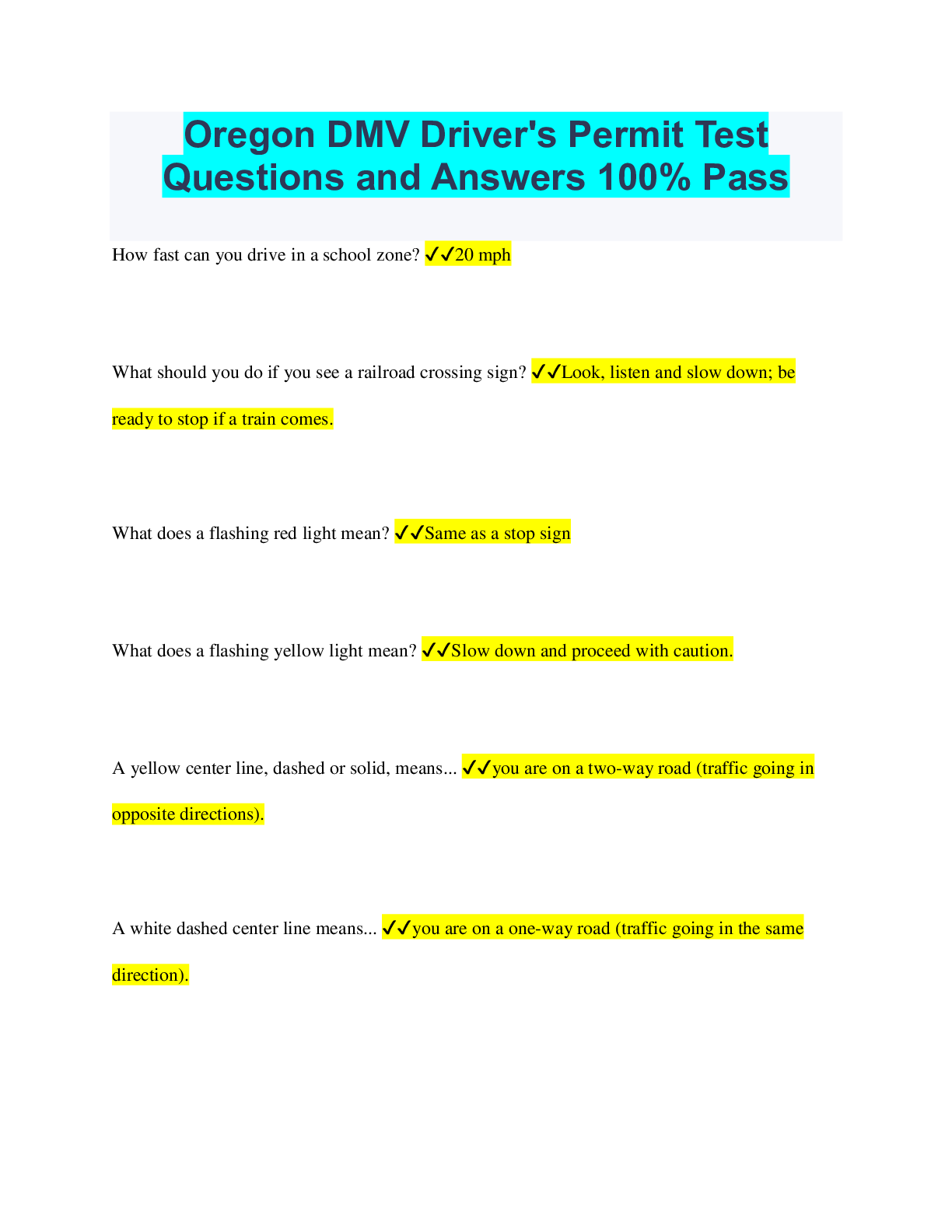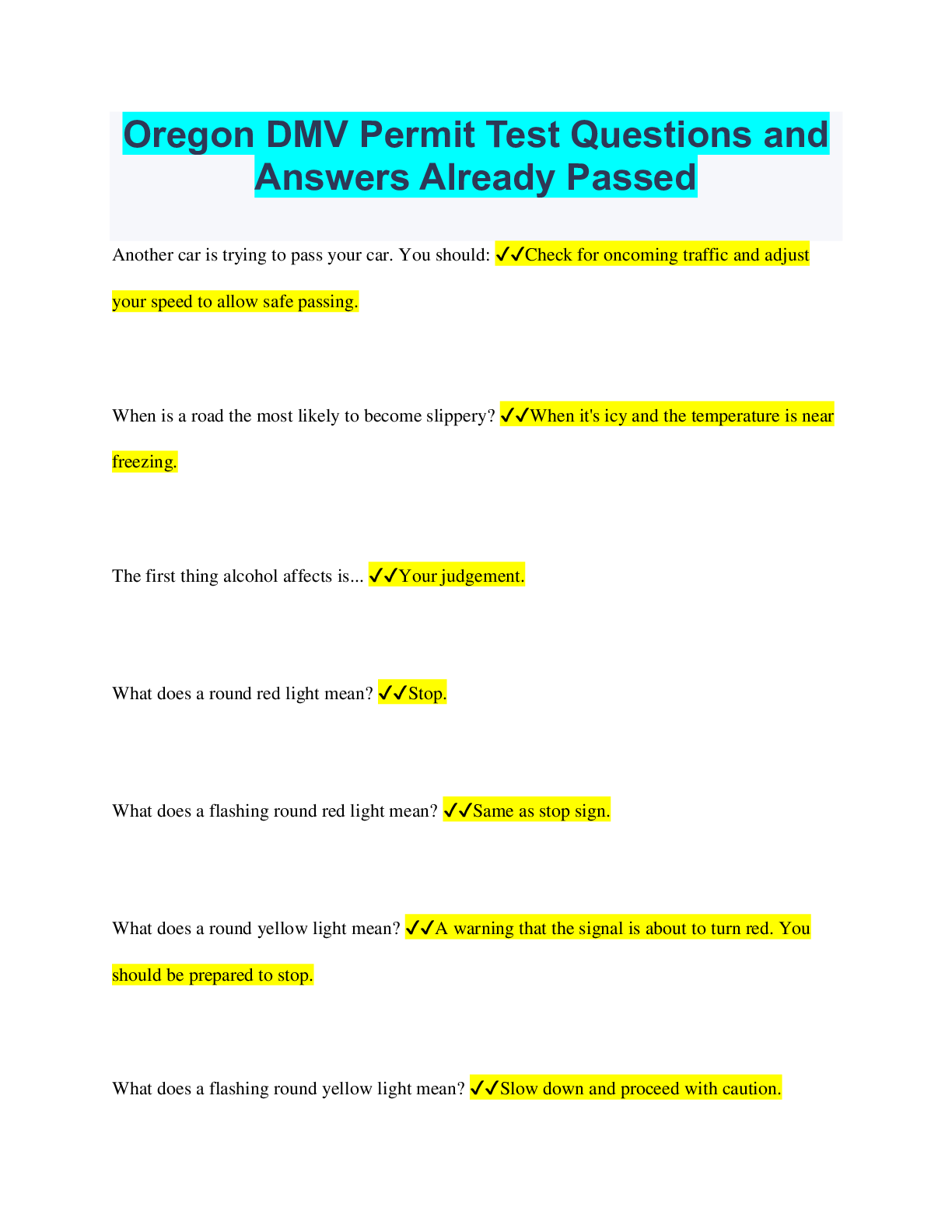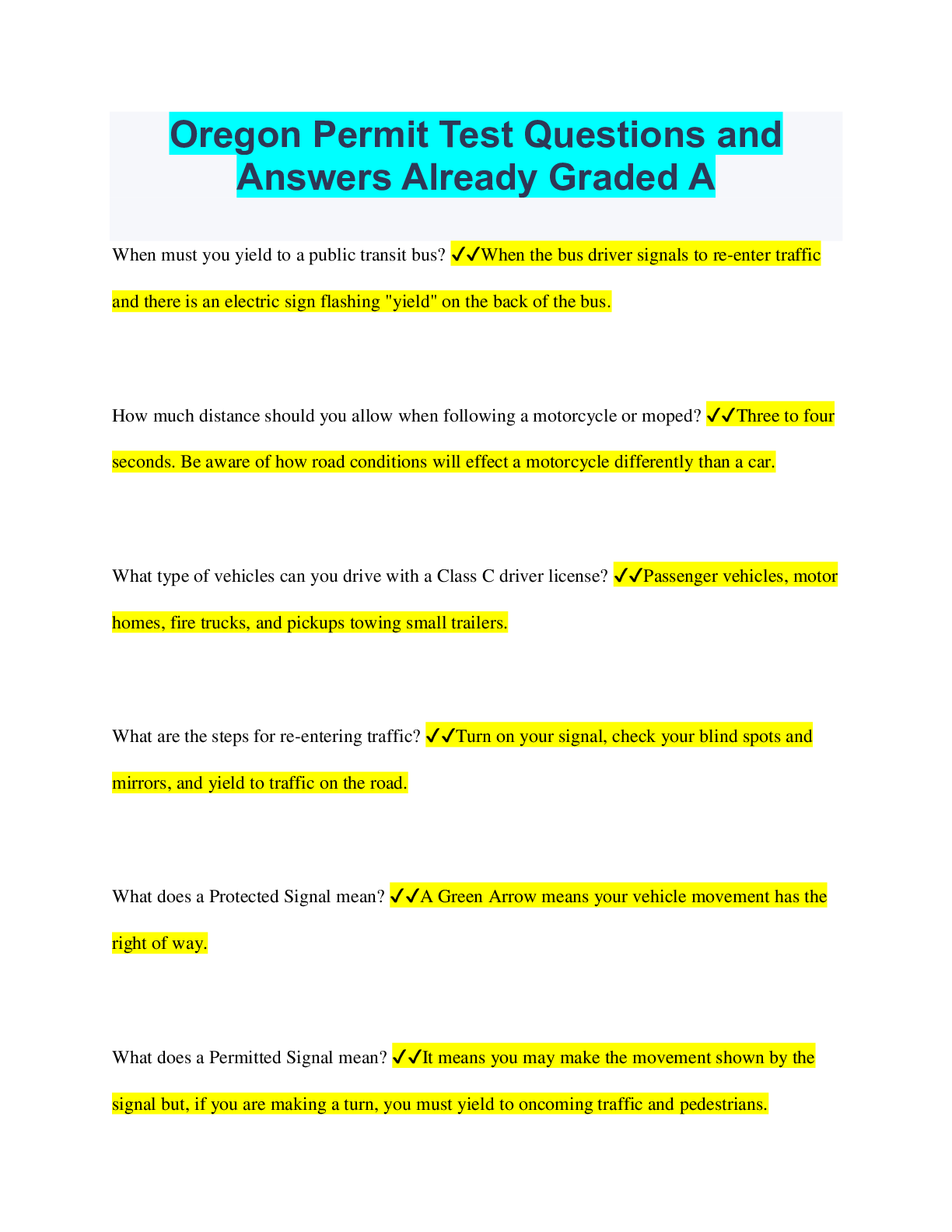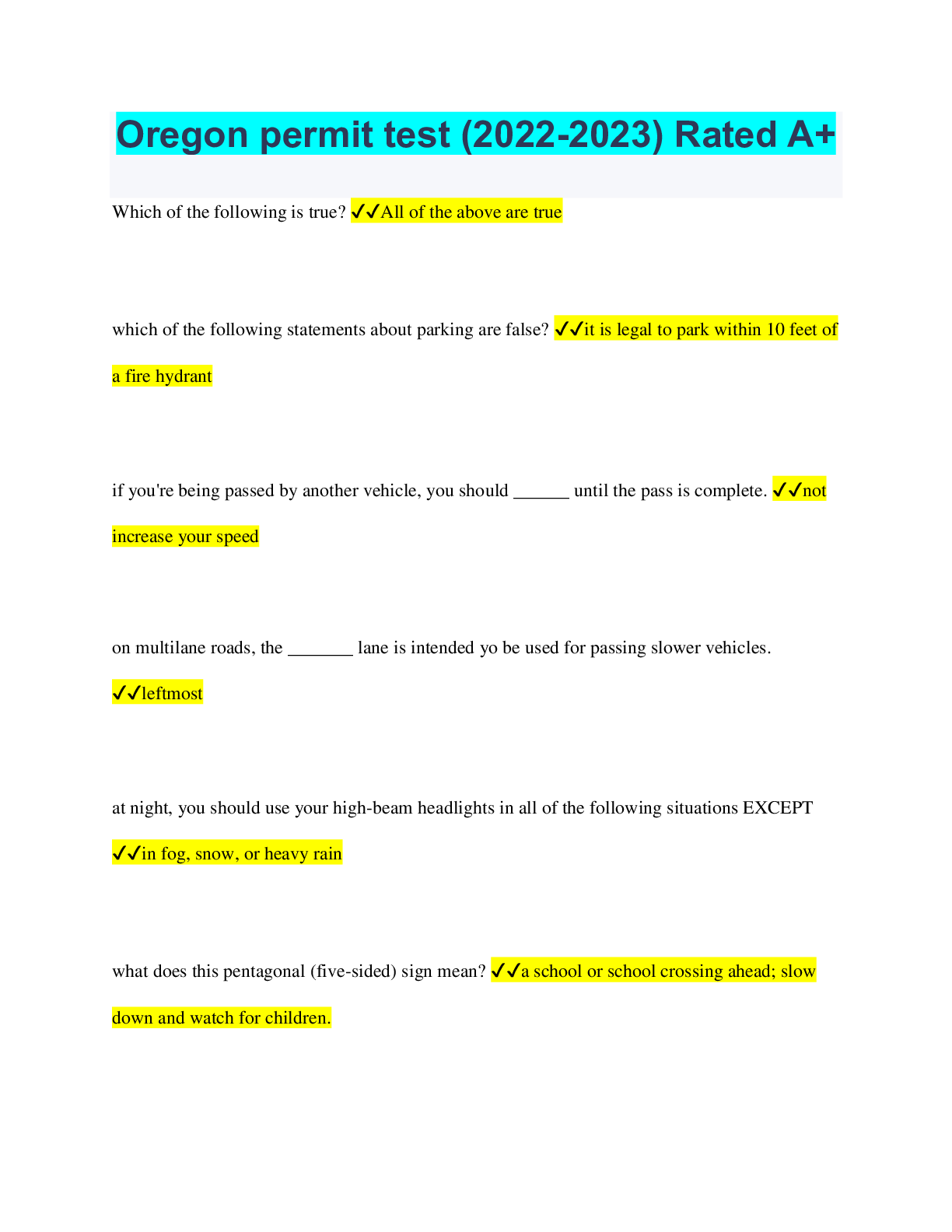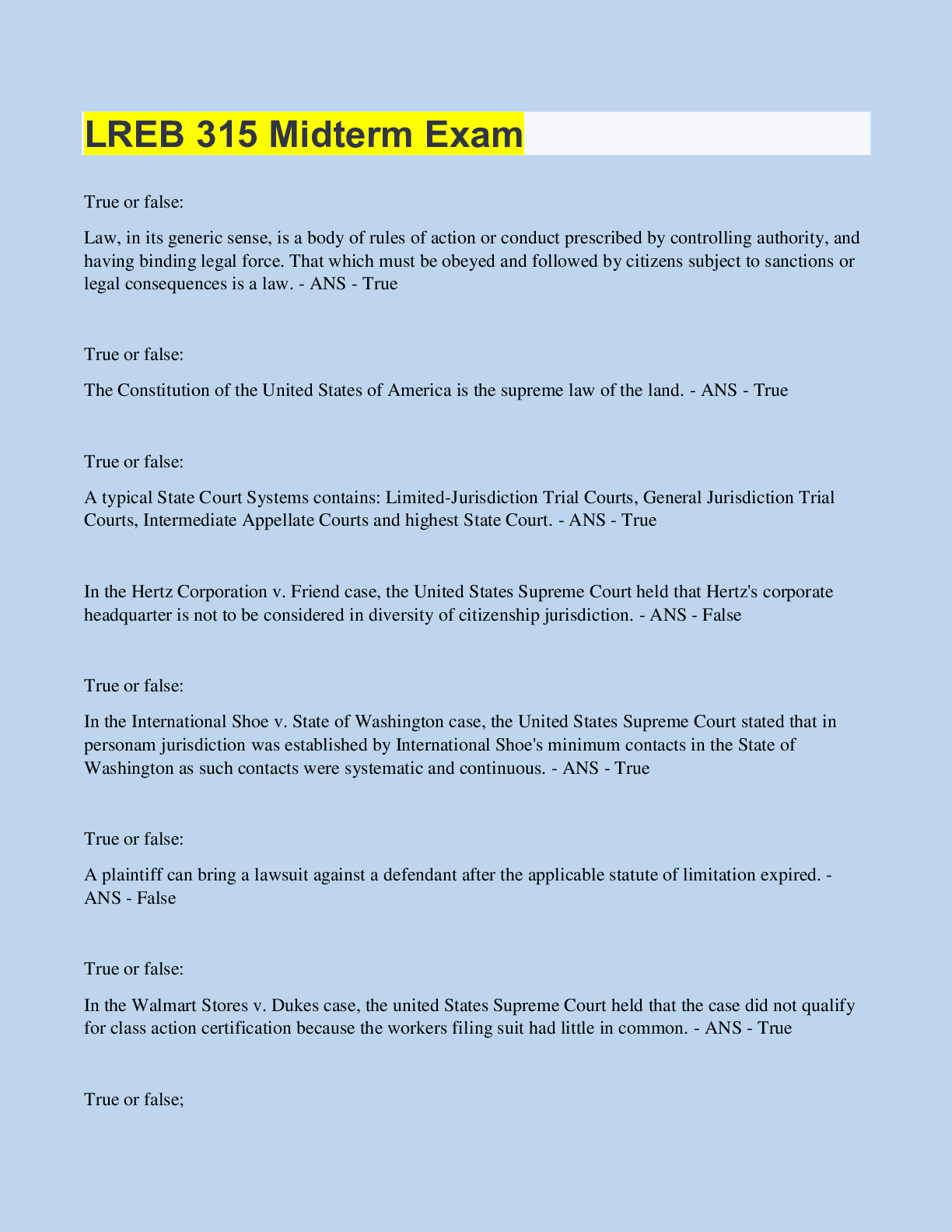Health Care > QUESTIONS & ANSWERS > Part 1: NBHWC Code of Ethics: Definitions 100% Pass (All)
Part 1: NBHWC Code of Ethics: Definitions 100% Pass
Document Content and Description Below
Part 1: NBHWC Code of Ethics: Definitions 100% Pass NBHWC ✔✔National Board of Health & Wellness Coaching is committed to maintaining and promoting excellence in coaching. Therefore, NBHWC expe... cts all credentialed health and wellness coaches (coaches, coach faculty and mentors, and students) to adhere to the elements and principles of ethical conduct: to be competent and integrate NBHWC Health and Wellness Coach Competencies effectively in their work. NBHWC Code of Ethics ✔✔Is designed to provide appropriate guidelines, accountability and enforceable standards of conduct for all NBHWC Credential- holders. In line with the NBHWC definition of coaching, all NBHWC Credential-holders commit to abiding by the following Code of Ethics. Health and Wellness Coaching ✔✔Health and Wellness Coaches partner with clients seeking self-directed, lasting changes, aligned with their values, which promote health and wellness and, thereby, enhance well- being. In the course of their work health and wellness coaches display unconditional positive regard for their clients and a belief in their capacity for change, and honoring that each client is an expert on his or her life, while ensuring that all interactions are respectful and non-judgmental. NBHWC Coach ✔✔A health and wellness coach certified by the NBHWC (after the National Certification Examination is available); and who thereby agrees to practice within the NBHWC Health and Wellness Coach Scope of Practice and Competencies and who pledges accountability to the NBHWC Code of Ethics. Professional Coaching Relationship ✔✔A professional coaching relationship exists when coaching includes an agreement (including contracts) that defines the rights, roles and responsibilities of each party. Roles within Coaching Relationships ✔✔In order to clarify roles in the coaching relationship it is often necessary to distinguish between the client and the sponsor. In most cases, the client and sponsor are the same person and are therefore jointly referred to as the client. 1. Client 2. Sponsor 3. Student 4. Faculty 5. Mentor 6. Conflict of Interest Client ✔✔The person(s) being coached. (May also be referred to as "coachee," "patient," or "member" in some settings.) Sponsor ✔✔The entity (including its representatives) paying for and/or arranging for coaching services to be provided. In all cases, coaching agreements should clearly establish the rights, roles and responsibilities for both the client and sponsor if the client and sponsor are different people. Student ✔✔Someone enrolled in an NBHWC-approved coach training program or working with an NBHWC-approved faculty member or coach mentor, in order to learn the coaching process or to develop and enhance his /her coaching skills. Faculty ✔✔An individual who provides primary instruction/training to students enrolled in an NBHWC-approved coach training program. Mentor ✔✔An individual who conducts coaching skills performance audits and provides feedback to coaching students/coaches for the purpose of developing and enhancing health and wellness coaching skills [Show More]
Last updated: 2 years ago
Preview 1 out of 4 pages
.png)
Buy this document to get the full access instantly
Instant Download Access after purchase
Buy NowInstant download
We Accept:

Also available in bundle (1)
.png)
NBHWC Bundled Exams Questions and Answers with Certified Solutions
NBHWC Bundled Exams Questions and Answers with Certified Solutions
By Nutmegs 2 years ago
$20
15
Reviews( 0 )
$8.00
Can't find what you want? Try our AI powered Search
Document information
Connected school, study & course
About the document
Uploaded On
Feb 28, 2023
Number of pages
4
Written in
Additional information
This document has been written for:
Uploaded
Feb 28, 2023
Downloads
0
Views
122

.png)

